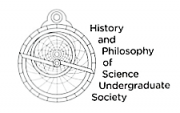Keynote Address: Dr. Heather Douglas
“Revising the Social Contract for Science”
The social contract for science was a tacit agreement between scientists and government officials, and between science and society more broadly, forged in the aftermath of WWII. The three main components of the contract were: 1) a distinction between basic and applied science, 2) a freedom from responsibility for societal impact when pursuing basic science (and an accompanying autonomy for scientists to decide which basic science to pursue), and 3) a special justification for funding basic science through public funds. I will describe how these three components merged in the post war context, how they powerfully shaped the understanding of the relationship between science and society (including underwriting the value-free ideal for science), and why they must be replaced in our current context. We still need some general agreement about how science is to be pursued, funded, and used in our pluralist democratic societies. I will sketch what a social contract for science might look like for the 21st century.
…
